My "Fab 5" Takeaways from FabCon Europe 2025
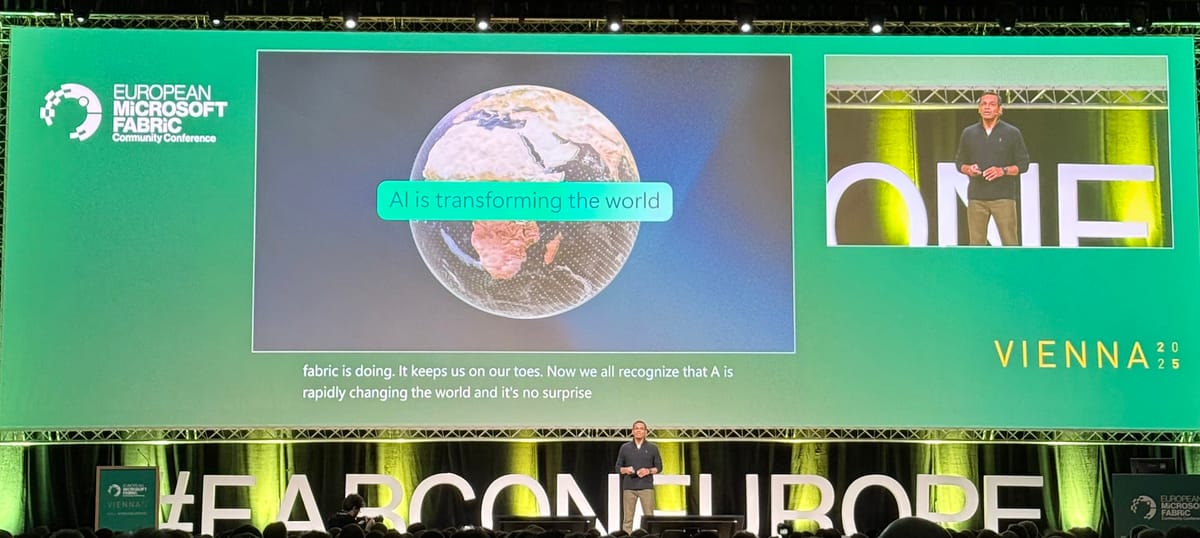
Intro & Context
From September 15th - 18th I attended the 2025 European Fabric Community Conference (or FabCon) in Vienna. The first day has an option of attending hands on tutorials run by the Microsoft product team or a Partner Pre-Day, with the remaining three days kicking off with a keynote followed by at least 4 slots to attend one of a number of breakout sessions. The format was similar to last year, but there were a few positive improvements; some new community events including (games, meetups, giveaways), a Real-Time Intelligence booth with a live demo connected to racing simulators running Forza Horizon, and a broader range of sessions including focused "Corenotes" (focused deep dives into specific products and features) and more technical L300/L400 sessions. It's also worth calling out that this year I attended the Partner-Pre Day rather than the tutorial day and I can honestly say that both are worth the additional day's time.
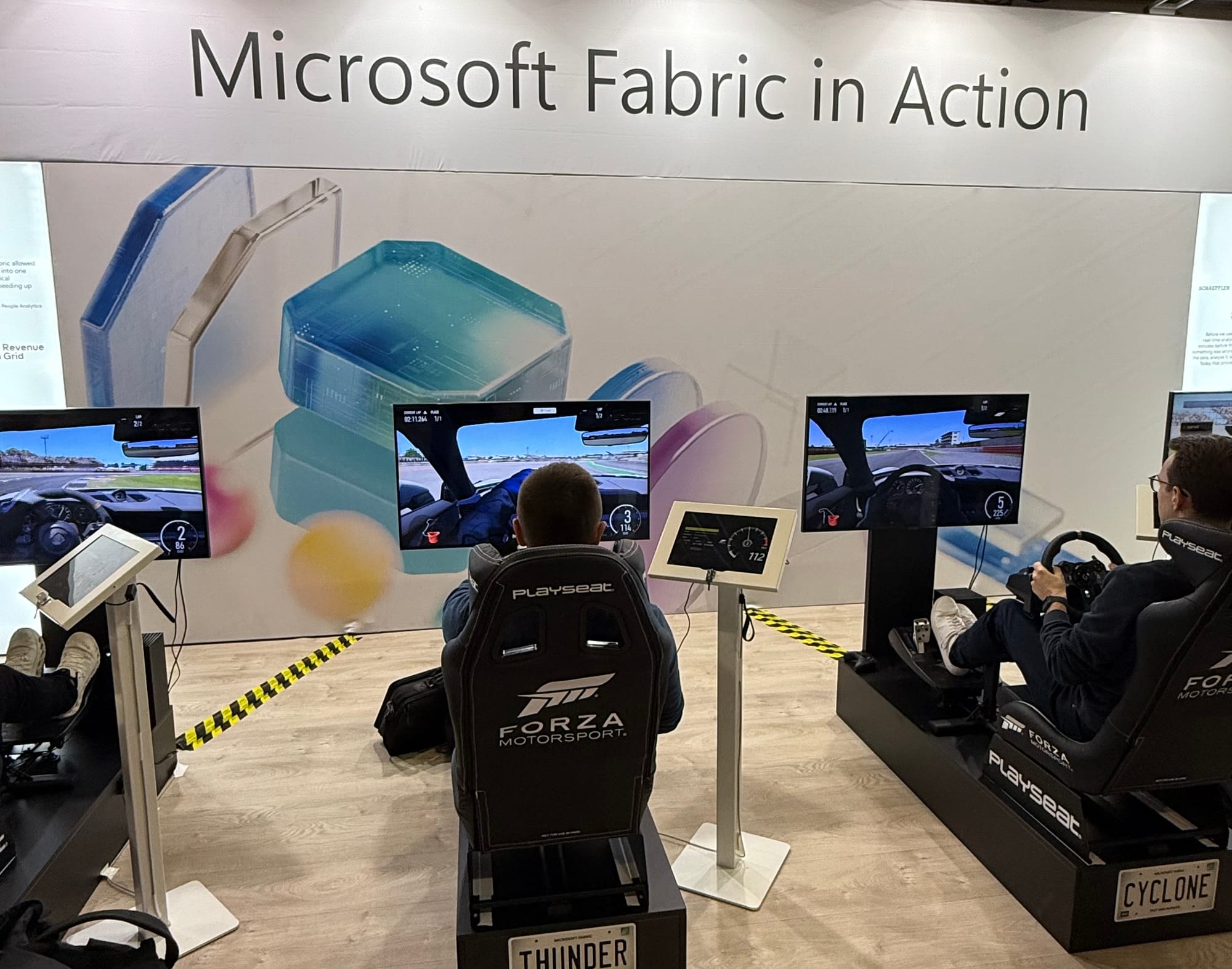
Community Spotlight
This time round, I knew what to expect from a “community conference” but there were a few callouts throughout the event about the growing partner, developer, and customer community that warranted mention here.
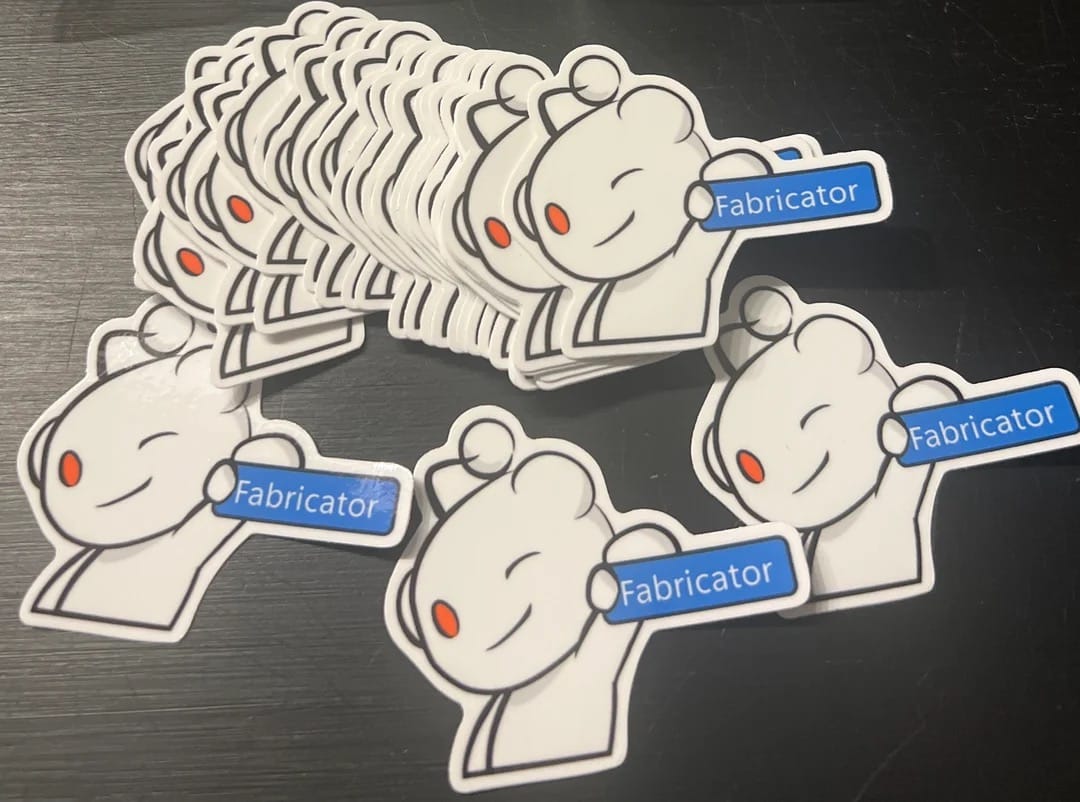
There were a few "Fabric in numbers" updates reiterating the platform's growth, backed by the growth also in attendees from 3,300 last year to more than 4,200 attendees. The Fabric partner community is growing massively, with more than 25,000 Fabric customers (>50% using 3 or more workloads, 80% of FTSE500 companies), 135,000 partner consultants Fabric trained, 6,000+ partners implementing Fabric (250 Fabric Featured Partners), and 17,000 Fabric projects being implemented through partners.
I commented last year on FabCon Europe's community elements offering an opportunity to engage directly with Microsoft product teams and leadership, but the additions of LT AMA sessions really amplified this. Getting an hour to ask some targeted questions, call out technical or adoptions issues, and to get a sense on issues being one-off vs shared with others in attendance as live feedback was helpful, and it did feel as though the Microsoft teams were quickly triaging questions to consider where workarounds or best practices could help vs. acknowledging those shared issues and taking feedback on board to (hopefully) include in development roadmaps.
As always, it was amazing spending time networking and engaging with the community from all sorts of backgrounds, countries, and industries be it to just get to know some new people, understanding what other people are working on, or trying to share knowledge. So much value came from the conversations between or outside of the sessions. Last year we had 7 people show up to a community meet up of the Fabric sub reddit... this year, it was almost 4x that
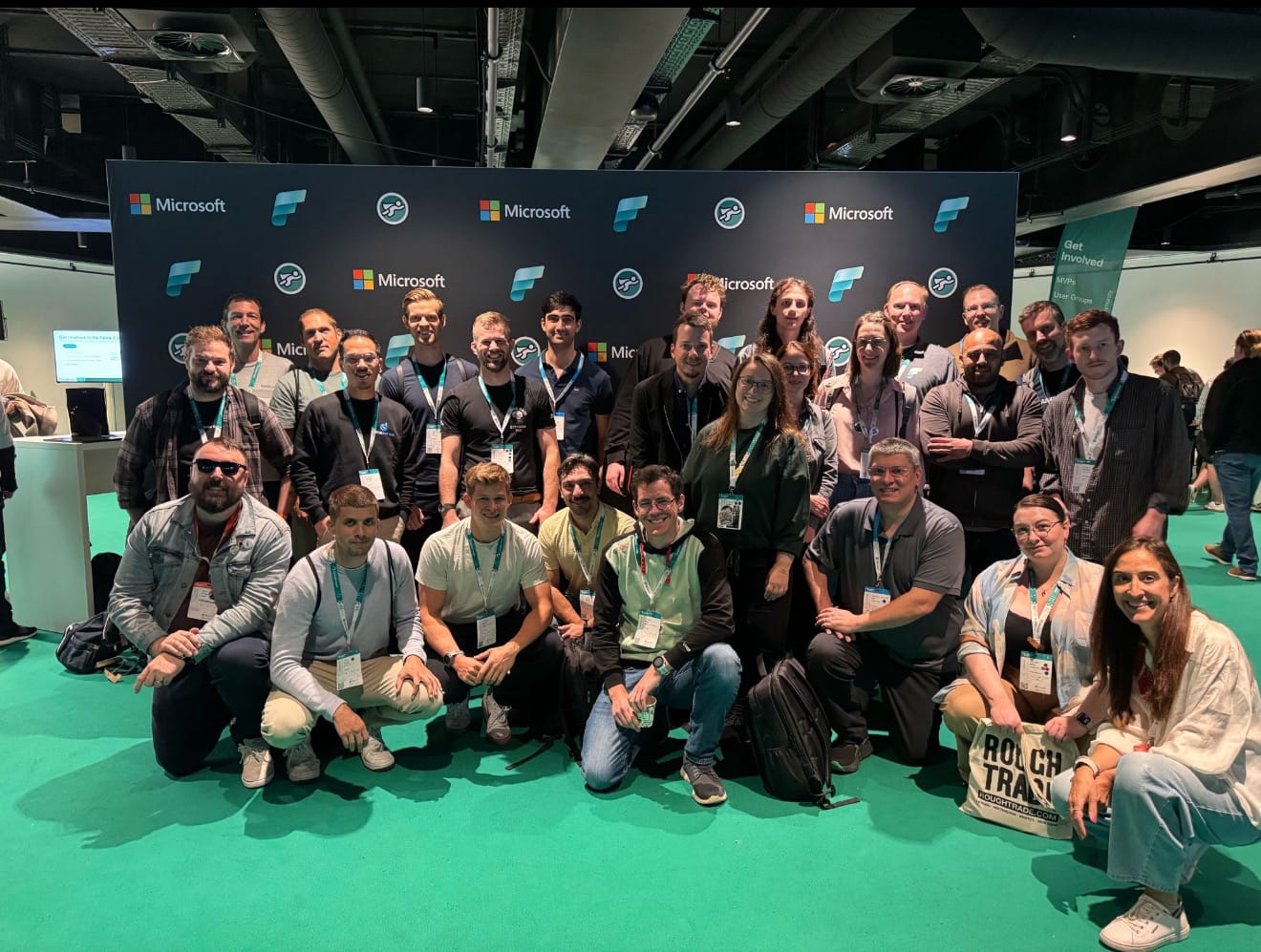
My Fab 5 Takeaways
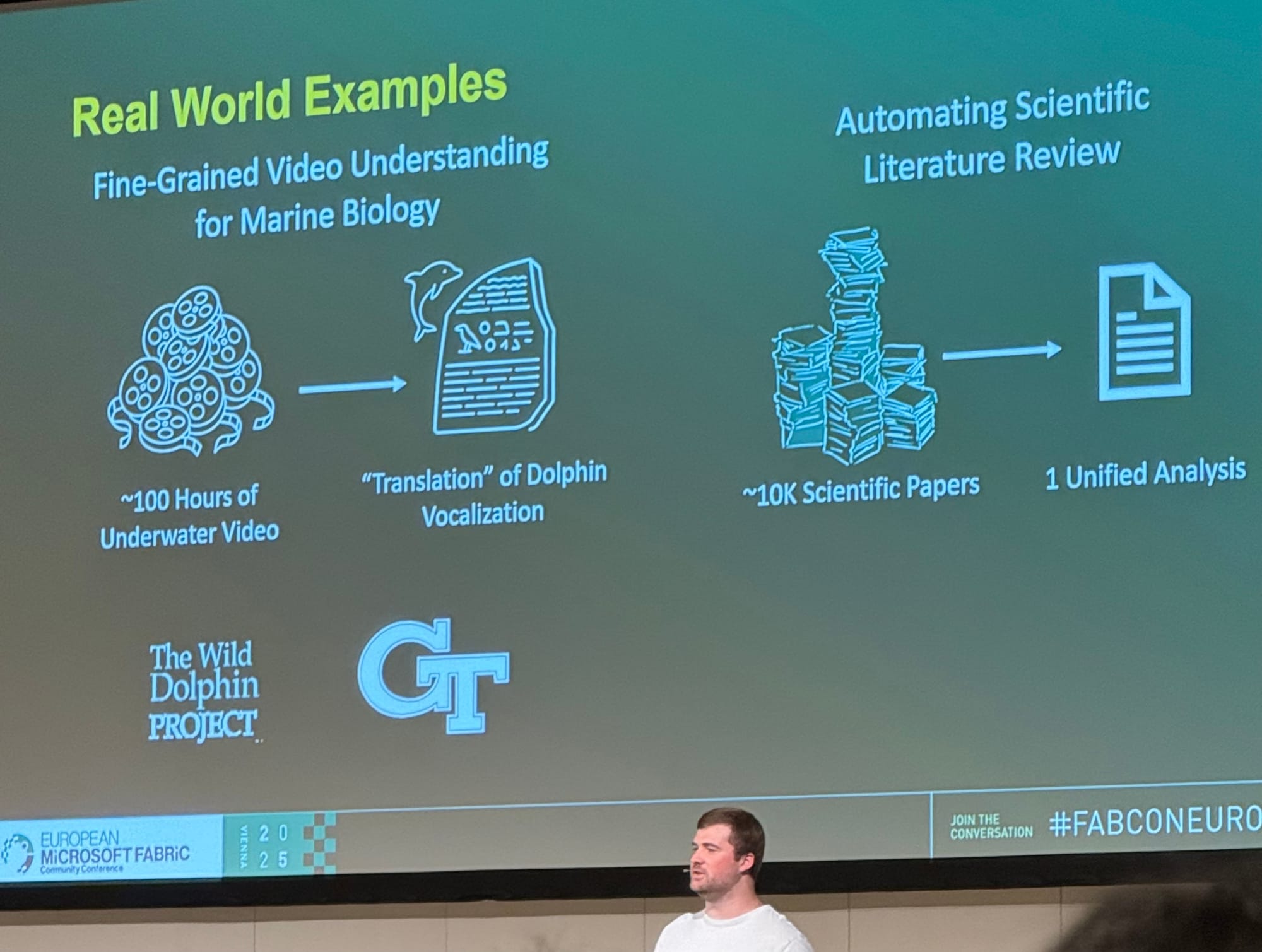
- Unsurprisingly, AI was a core topic throughout the conference, and called out in the vast majority of sessions. A few things were interesting to me on this; there was a a great variety of use cases and components (UDFs, Fabric agents, Foundry integration, Copilot) on display, demos had a great hands-on practical focus, AI security got quite a bit of attention, and there was some specific technical guidance around best practice ranging from semantic model readiness to tips for scaling CosmosDB in production. It’s been really nice seeing the conversation and AI demos evolve during recent events (multilayered agents, a computer use agent for submitting support tickets, combining fabric with foundry, practical adoption advice) and something that I think we will continue to see improve customer adoption.
- Focus on Going Generally Available (GA) - before attending in 2024, I wrote a blog where I had hoped for some preview features to move to general availability, and I saw a similar sentiment in a number of forum threads over recent months. I think there was a general maturing of the Fabric platform recently which was reflected in a variety of GA announcements at FabCon including the OneLake Catalog Govern tab, Python Notebooks, User Data Functions, Variable Library, Data Warehouse Migration Assistant, various pipeline activities, the VSCode extension, and perhaps the most anticipated announcement of 100% coverage of Fabric assets in CI/CD support.
- Agents aren't going anywhere, but how we approach development processes and governance will clearly play a big part in their value add (or lack thereof). I think the development options can be a little overwhelming for new agent developers (Fabric, Foundry, Copilot Studio, etc.) and understanding best practices across each will be difficult, but the implications of design decisions like the ability to properly version control agents, restrictions in user and agent accesses, and mechanisms for monitoring both use and performance suggest that the governance around how we enable developers and users and defining standards for architecting agentic solutions will be increasingly important. I do expect Microsoft will be working on some new or additional tooling to address this, but for now it's really down to collaboration / knowledge sharing and experimentation.
- Copilot in Power BI got range of updates covering Power BI apps, AI data schemas for copilot enabled semantic models, and the ability to give specific guidance through verified answers and AI instructions that should massively improve accuracy for end users. Combine this with the Fabric data agent updates, Fabric data agent and "Chat With Your Data" MCP Server, Foundry + Fabric data agent integration, and various Teams integrations, I think this is the first time I've really seen the direction of travel align with M365 Copilot being "your UI for AI." I think there's some time before this is a reality for most businesses, but the pieces are coming together nicely.
- There was a real focus on developer experience. With a quoted 7 million developers or creators and more than 20 million semantic models globally, it's not surprising that the developer experience has been an area of focus. This includes Fabric CLI going open source, a new and improved UI, web authoring getting significant updates to be closer to the Power BI desktop experience, and a very interesting evolution of the workload development kit now called the Fabric extensibility toolkit for developing Fabric apps. I also noted a number of quality of life improvements related to both functionality and performance with my favorite one perhaps being cost/consumption for Gen2 Dataflows (25-90% improvements), but if I'm being critical I do think it would be great to see similar improvements addressing the biggest challenges developers are dealing with (e.g. monitoring).
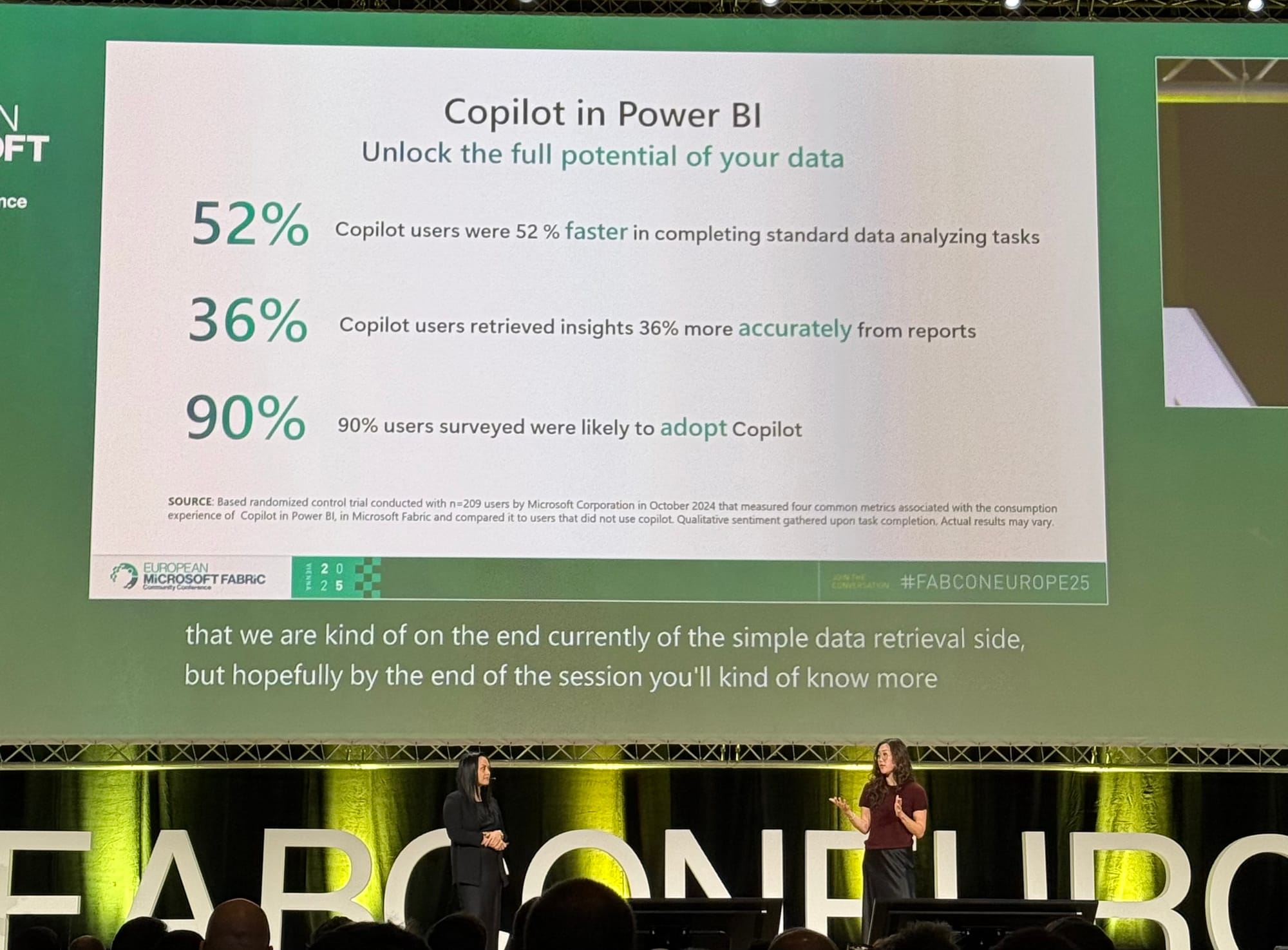
Other feature announcements & Thoughts
The September update blog is worth a read if you have the time, and there's no doubt more updates coming at Ignite in November.
Above I mentioned AI security getting a significant amount of attention. It's worth mentioning that there was a quoted 56% increase of AI related cybersecurity incidents last year. The monthly feature updates included lots of things in this vein including OneLake security (too many to list, coming soon), outbound data protection, Purview data security for AI, all of which felt aligned not just to increase controls and risk mitigation, but also to define once and apply everywhere (fabric, copilot, even excel).
In line with my Fab 5 takeaways, also think it's worth calling out that agents got 5 mentions in the 2024 September update blog (all from one callout) compared to the 43 in September 2025's blog.
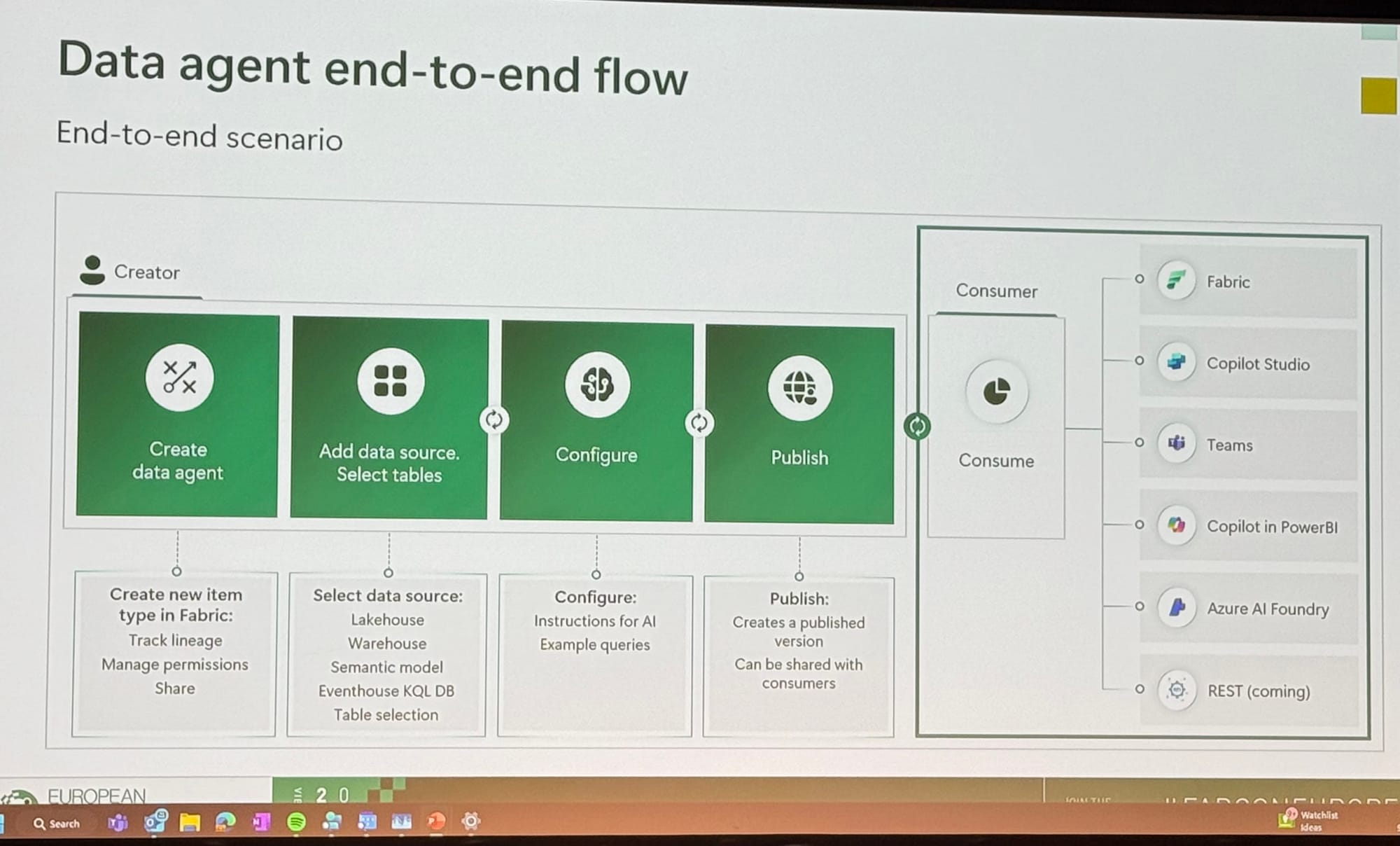
I promise I will do better following FabCon 2026 to get my debrief blog written up a little earlier! There's plenty more to come, no doubt, at Ignite in November, but I hope to see many new and familiar faces in Barcelona next year at what has become my favorite event of the year.
